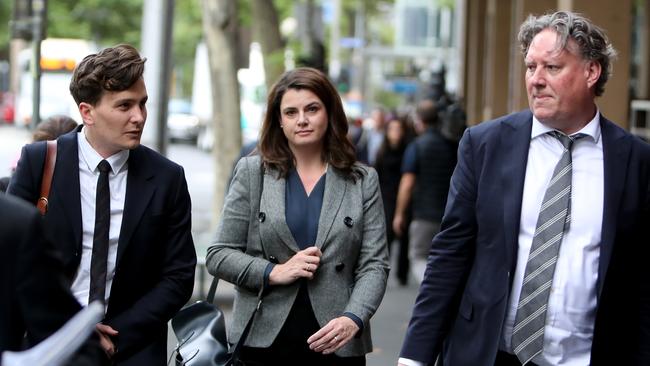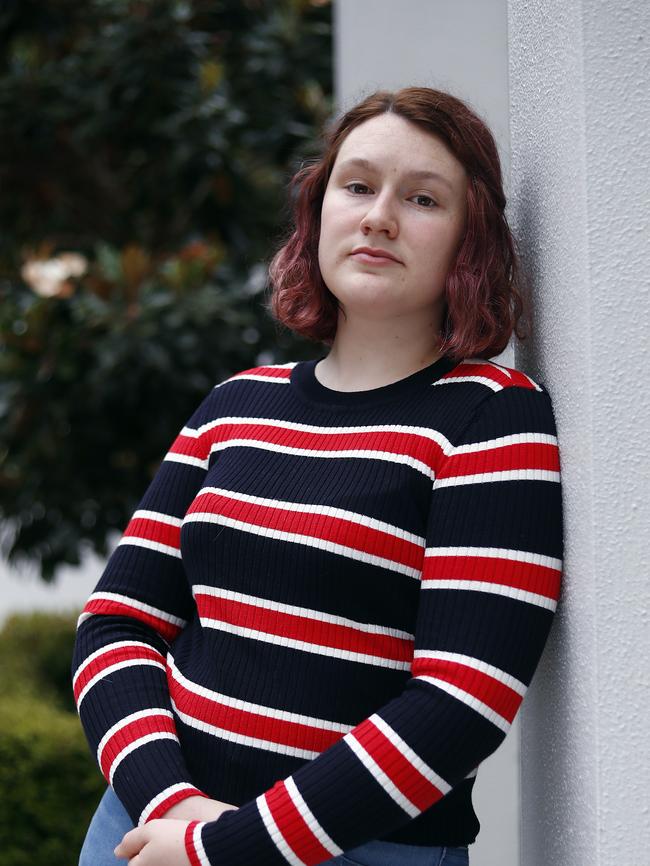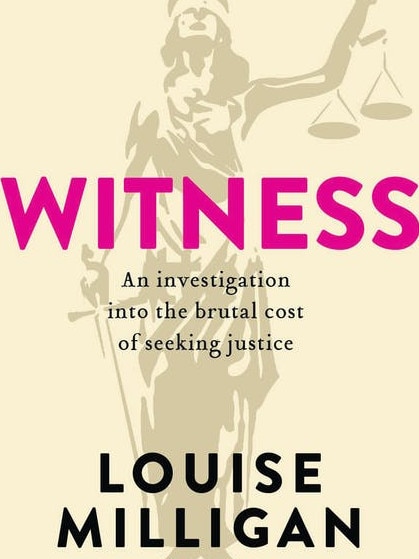Louise Milligan’s Witness and the high price of seeking justice
A court bid to destroy ABC reporter Louise Milligan’s credibility drove her to pen a disturbing new book.

Louise Milligan’s previous book, Cardinal, was an expose of George Pell. It won the 2017 Walkley Book Award but also brought Milligan the ire of Pell’s vocal public defenders.
The ABC journalist’s new book, Witness, is not about Pell, at least not primarily. But it was inspired by Milligan’s experience as a Crown witness at Pell’s committal hearing in March 2018, on five counts of historic sexual assault against two Melbourne choirboys.
Pell’s counsel, Robert Richter QC, sought to destroy her credibility during cross-examination.
Her standing as a journalist and author – for good and ill – seems to hinge in some minds on the outcome of recent legal processes involving Pell. His convictions were overturned in the High Court following a legal battle.
Milligan was a witness at Pell’s committal because she had interviewed several complainants against him. She describes Richter’s tactics towards her as “disgusting” and “wearying” and his tone as “sneering, sarcastic, bullying”. But, unintentionally, Richter galvanised her.
“Through all of this,” she writes, “I just kept imagining all the vulnerable, traumatised victims of all sexual crimes, who had no law degree … who were not legally advised by a top QC as I had been, who did not have a team of lawyers at the ABC to fall back on …
“I thought of those people, who had spent the past decades burying away their childhood shame, who might have taken to drug or alcohol addiction to make it go away, to dull the throb in their brain, to switch off the disgusting flashbacks … How would they manage that kind of questioning?”
Witness is an important, disturbing book. It is especially topical in light of the selection of sexual assault survivor Grace Tame as the 2021 Australian of the Year.
Milligan presents vivid case studies of several victims of alleged or proven sexual assault, including a (then) 18-year-old NSW Central Coast woman, Saxon Mullins, and a (then) 15-year-old Melbourne schoolboy, Paris Street.
The sordid details of the sexual degradation are painful enough to read, but the salient point is that their experience of the criminal justice system made things immeasurably worse. Like many others before and since, they were “re-traumatised”.
In Mullins’s case, there was no dispute that she was subjected to anal intercourse in an alley behind a Kings Cross nightclub at 4am, while intoxicated, by a man she had met less than half an hour before.

The accused claimed that he believed she was consenting, and it was suggested to Mullins in cross-examination that her motivation for bringing the complaint was jealous malice. The jury at the first trial delivered a verdict of guilty, but the judge at a subsequent retrial found that the possibility that the accused believed Mullins was consenting (even though she had not, in fact, consented) had not been excluded beyond reasonable doubt. The accused was acquitted.
Even that bare summary does not do full justice to the Kafkaesque nightmare of Mullins’s experience. But at least her case has attracted sympathetic media attention: hundreds if not thousands of other victims, unknown and unvindicated by the justice system, must suffer alone.
As Milligan observes, only 7 per cent of sexual assaults reported to NSW police in 2009-2018 resulted in criminal convictions (about half of those that went to court). Yet it is inconceivable that 93 per cent of those complainants were liars or hysterics. Given that a great many other sexual assaults must have gone unreported entirely, these statistics bespeak an appalling situation.
It may be better, as the great English jurist William Blackstone insisted, that 10 guilty people go free than that one innocent person be convicted; but the ratio nowadays in sexual assault cases in Australia must be closer to 100:1, or even higher.
Drawing on interviews with prominent members of the legal profession, and experts in academia, Milligan correctly identifies some of the problems: indecent “win at all costs” tactics by defence counsel; reluctance by trial judges and Crown counsel to use existing powers under the Uniform Evidence Acts and other legislation to protect witnesses; the belief across the community in persistent myths about how “real” victims behave, to name a few.
What can be done? Some possible solutions – such as lowering the standard of proof in a criminal trial for sexual offences – are untenable. Others – such as tightening the concept of “consent”, to make it harder for amoral sexual opportunists to claim they “believed” the victim was submitting – are under consideration by the NSW Attorney-General. But a recent report by the NSW Law Reform Commission suggests any change on this score will be minimal.

Milligan floats one idea worth considering: grant complainants at sexual assault trials the right to be represented by their own counsel. “Almost all the victims I speak to,” she writes, “say that having a lawyer in court to protect them would make an enormous difference to their experience.”
I have two more suggestions. They are radical and would require most carefully drafted legislation. But the status quo is unacceptable.
First, in certain types of sexual assault cases, formally permit adverse inferences to be drawn against an accused who elects not to give oral evidence at trial.
Yet another defect in the current system is the stark imbalance between the accused’s near-unfettered right not to give evidence at trial and the vicious cross-examination to which many complainants are subjected. At least in cases that boil down to one person’s word against another’s, this is an anomaly that ought no longer to be tolerated.
My second suggestion is, perhaps, even more radical: develop options other than the blunt instrument of the criminal law. Many more perpetrators would be likely to admit their guilt, to apologise to their victims, and to make appropriate reparations, if they did not face the prospect of years of imprisonment as well.
So, in appropriate circumstances, grant some the assurance of a non-custodial sentence – or even, perhaps, immunity from prosecution. That would still be most imperfect justice. But it was done in South Africa in the post-Apartheid era, in respect of all manner of foul crimes, and left many victims feeling comforted.
Roy Williams teaches evidence law at the University of Sydney
Witness: An Investigation into the Brutal Cost of Seeking Justice
Hachette Australia, 375pp, $34.99



To join the conversation, please log in. Don't have an account? Register
Join the conversation, you are commenting as Logout